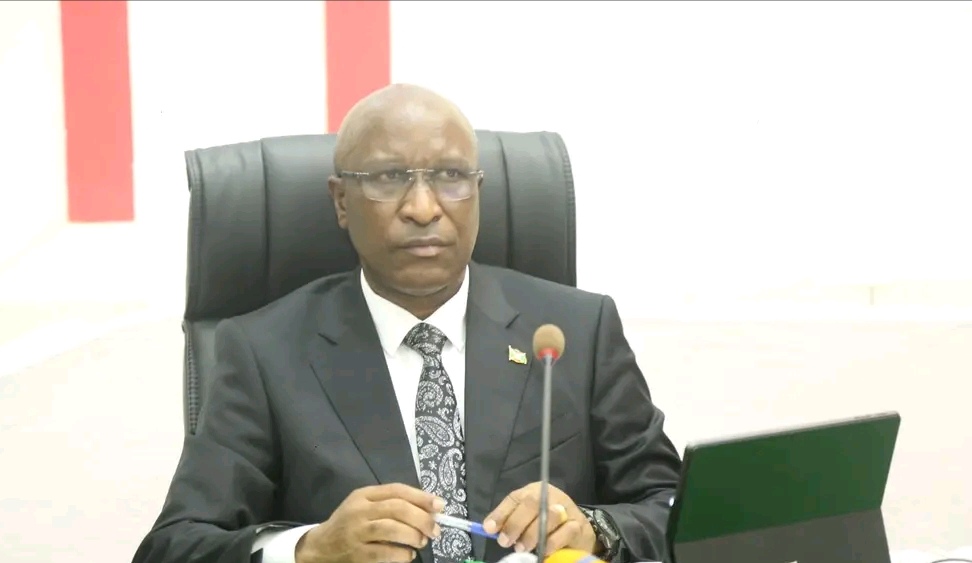BUJUMBURA, October 28th (ABP) – Prime Minister Gervais Ndirakobuca responded to the various concerns of parliamentarians after presenting before the two Houses of Parliament meeting in congress at the Kigobe hemicycle on October 24, 2024, the report of the government’s Annual Work and Budget Plan (PTBA) for the second half of the 2023-2024 financial year.
During discussions on the government’s achievements report, parliamentarians wanted to know where the real obstacle to the start of construction work on the Uvinza-Malagarazi-Musongati-Gitega railway is. On this issue, the Prime Minister responded that the procurement procedures for this railway project follow the guidelines of the AfDB (African Development Bank), as agreed in the financing agreement, while stressing that all stages have been completed except that of the signing of the contracts for the start of work.
According to Ndirakobuca, it is noted that the only obstacle lies in the long procurement procedures that follow the lessor’s guidelines that must be respected. Currently, he specified, the negotiation phase of the contract with the successful company has been done. The draft contract has been submitted to the AfDB for a request for no objection in order to proceed with the signing of the contract for payments, and the no objection is still awaited in order to proceed with the negotiations of the contract for the control office. Therefore, the effective start of work is conditioned by the completion of all these procedures, he explained.
On the same issue, the representatives of the people also wanted to know the government’s message to reassure the owners of the lands who are affected by this project and who cannot until now enjoy all the attributes of the right of ownership.
The Prime Minister replied that the railway construction project is an activity of public interest and is a priority for the government. He added that this project will bring a benefit to the Burundian population in general and the local population in particular.
While waiting for the effective implementation of the project, he continued to say, the population continues to exploit their lands but should not build infrastructure or plant crops that take a long time, in order to limit the increase in the cost of compensation which risks increasing the budget of the project. He added that the final delimitation of the affected area will be materialized with the start of the works for which the contracts are in the final phase for signature. The parliamentarians also wanted to know if the government plans a fund to compensate for the loss of income that the owners of those lands are suffering following the depreciation of the BIF.
On this concern, Mr. Ndirakobuca responded that the phenomenon of depreciation of the BIF is national and affects all components of the country’s activities including compensation operations. In addition, he justified, the provision of funds for compensation with regard to the current depreciation in BIF cannot be considered without prior and special exemption and will not only concern people affected by the railway project, but rather by all infrastructure projects currently being set up or executed.
Regarding the budget execution for the repayment of the principal of the direct bilateral debt with a budget execution rate of 143% and for the payment of the interests of the direct bilateral debt with a rate of 57%, the parliamentarians wanted to know this execution in excess for the repayment of the principal and this low execution rate for the payment of the interests of the bilateral debt.

Reacting to this question, Mr. Ndirakobuca explained to them that the execution in excess for the repayment of the principal of the direct bilateral debt is explained by the fact that the principal forecasts in the PTBA were distributed equitably over the four quarters, that is, the voted budget divided by four. This is an error established during the preparation of the final version of the PTBA, he said. The distribution of the amount to be repaid in principal in the different quarters of the year refers to the maturity date of each loan.
Regarding the payment of interests, he justified, the forecasts included in the finance law and the PTBA are based on the level of the forecast debt stock generated by the debt management system while the interests actually incurred during each quarter are calculated on the level of the actual debt stock.
In addition, when forecasting the interests to be paid during the year, the debt management system takes into account the forecast disbursements to be made on the projects in progress on the financing of project loans, and if it happens that during the year the amount actually disbursed was low or was not carried out as expected, the actual interests to be paid calculated on the actual amount disbursed not yet repaid becomes low, the head of government explained.
Regarding the issue of young people who have taken the general census of population, housing, agriculture and livestock but have not yet received their salaries, the head of government said that the problem is being resolved, and that they will receive their salaries soon.

